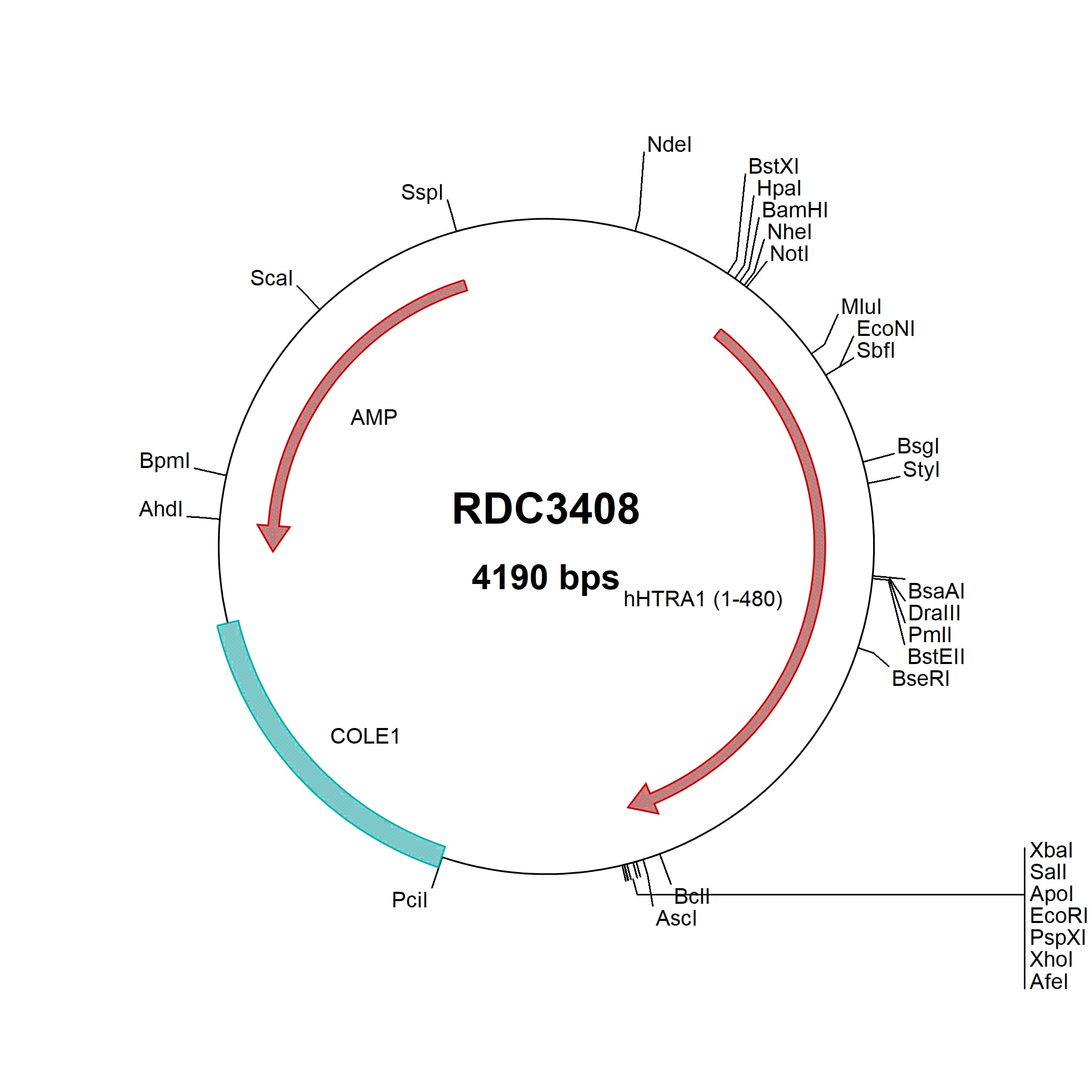HTRA1/PRSS11: cDNA Clones
First discovered in E.coli, HTRA null mutants had two phenotypes. They either did not grow at elevated temperatures (HTRA for High Temperature Requirement) or failed to digest misfolded proteins in the periplasm (DegP). Subsequently, prokaryotic HTRA has been attributed to the tolerance against various folding stresses and to pathogenicity. Human homologs (HTRA1 to 4) are believed to play a role in arthritis, cell growth, unfolded stress response, apoptosis, aging and tumor progression.
1 result for "HTRA1/PRSS11 cDNA Clones" in Products
1 result for "HTRA1/PRSS11 cDNA Clones" in Products
HTRA1/PRSS11: cDNA Clones
First discovered in E.coli, HTRA null mutants had two phenotypes. They either did not grow at elevated temperatures (HTRA for High Temperature Requirement) or failed to digest misfolded proteins in the periplasm (DegP). Subsequently, prokaryotic HTRA has been attributed to the tolerance against various folding stresses and to pathogenicity. Human homologs (HTRA1 to 4) are believed to play a role in arthritis, cell growth, unfolded stress response, apoptosis, aging and tumor progression.

